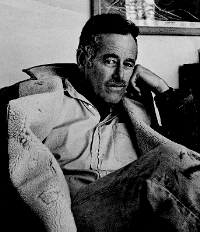
JAMES SALTER - SELECTED BIBLIOGRAPHY
FICTION
THE HUNTERS. New York: Harper, 1956.
THE ARM OF FLESH. New York: Harper, 1961.
A SPORT AND A PASTIME. Garden City, NY. Doubleday, 1967.
LIGHT YEARS. New York: Random House, 1975.
SOLO FACES. Boston: Little Brown, 1979.
DUSK AND OTHER STORIES. San Francisco: North Point, 1988.
STILL SUCH. New York: W. Drenttel, 1992.
NONFICTION
TASTING PARIS: AN INTIMATE GUIDE: THE STREETS, THE BISTROS, AND THE LOUVRE. Hopewell, NJ: Ecco Press,1996.
BURNING THE DAYS: RECOLLECTION. New York: Random House, 1997.
SELECTED RESOURCES
Criticism
Dowie, William. "A Final Glory: The Novels of James Salter." COLLEGE ENGLISH 50 (1988): 74-88.
Howard, Gerald. "Smoke Gets in Your Eyes." NATION 265 (1997): 46.
Hynes, Samuel. "A Teller of Tales Tells His Own." NEW YORK TIMES BOOK REVIEW, 7 September 1997, p. 9.
Miller, Margaret Winchell. "Glimpses of a Secular Holy Land: The Novels of James Salter." THE HOLLINS CRITIC 19 (1982):1-13.
Rorm, Ned. "The Artistry of James Salter." WASHINGTON POST BOOK WORLD, 6 March 1988, p. 1.
Profiles/Interviews
Baker, Fred, Editor. "James Salter on The Screenwriter." MOVIE PEOPLE: AT WORK IN THE BUSINESS OF FILM. NewYork: Douglas Book Corporation, 1972.
Begley, Adam. "A Few Well-Chosen Words." NEW YORK TIMES, 28 October 1990, Section 6, p. 40.
Burke, Robert. "Interview with James Salter." BLOOMSBURY REVIEW. 8 (1988): 3.
Dowie, William. "James Salter." AMERICAN SHORT-STORY WRITERS SINCE WORLD WAR 11. Dictionary of Literary Biography, vol. 130. Detroit: Gale Research Inc., 1993.
 from the works of James Salter
from the works of James Salter
"Once at a dinner party I was asked by a woman what on earth I had ever seen in military life. I couldn't answer her, of course. I couldn't summon it all, the distant places, the comradeship, the idealism, the youth. I couldn't tell about flying over the islands long ago, seeing them rise in the blue distance wreathed in legend, the ring of white sur around them. Or the cities, Shanghai and Tokyo, Amsterdam and Venice, gunnery camps in North Africa and forgotten colonies of Rome along the shore.
"I couldn't describe that, or what it was like waiting to take off on missions in Korea, armed, nervous, singing songs to yourself, or the electric jolt that went through you when the MIGs came up. I couldn't tell about Mahurin being shot down and not a soul seeing him go, or George Davis, or deArmont, who used to jump up on a table in the club and recite "Gunga Din"--the drunken pilots thought he was making it up.
"I couldn't tell her about brilliant group commanders or flying with men who later became famous, the days and days of boredom and moments of pure ecstasy, of walking out to the parked planes in the early morning or coming in at dusk when the wind had died to make the last landing of the day and the mobile control officer giving two quick clicks of the mike to confirm: grease job. To fly with the thirty-year-old veterans and finally earn the right to lead yourself, flights, squadrons, a few times the entire group. The great days of youth when you are mispronouncing foreign words and trading dreams."
- from Burning the Days: Recollection
"Certain things I remember exactly as they were. They are merely discolored a bit by time, like coins in the pocket of a forgotten suit. Most of the details, though, have long since been transformed or rear-ranged to bring others of them forward. Some, in fact, are obviously counterfeit; they are no less important. One alters the past to form the future. But there is a real significance to the pattern which finally appears, which resists all further change. In fact, there is the danger that if I continue to try, the whole concert of events will begin to fall apart in my hands like old newspaper, I can't bear to think of that. The myriad past, it enters us and disappears. Except that within it, somewhere, like diamonds, exist the fragments that refuse to be consumed. Sifting through, if one dares, and collecting them, one discovers the true design." - from A Sport and a Pastime
"The day is white as paper. The windows are chilled. The quarries lie empty, the silver mine drowned. The Hudson is vast here, vast and unmoving. A dark country, a country of sturgeon and carp. In the fall it was silver with shad. The geese flew overhead in their long, shifting V's. The tide flows in from the sea. "The Indians sought, they say, a river that 'ran both ways.' Here they found it. The salt wedge penetrates as far in as fifty miles; sometimes it reaches Poughkeepsie. There were huge beds of oysters here, seals in the harbor, in the woods inexhaustible game. This great glacial cut with its nuptial bays, the coves of wild celery and rice, this majestic river. The birds, like punctuation, are crossing in level flight. They seem to approach slowly, accelerate, pass overhead like arrows. The sky has no color. A feeling of rain.
"All this was Dutch. Then, like so much else, it was English. The river is a reflection. It bears only silence, a glittering cold."- from Light Years
For additional information, contact the Writers Institute at 518-442-5620 or online at https://www.albany.edu/writers-inst.